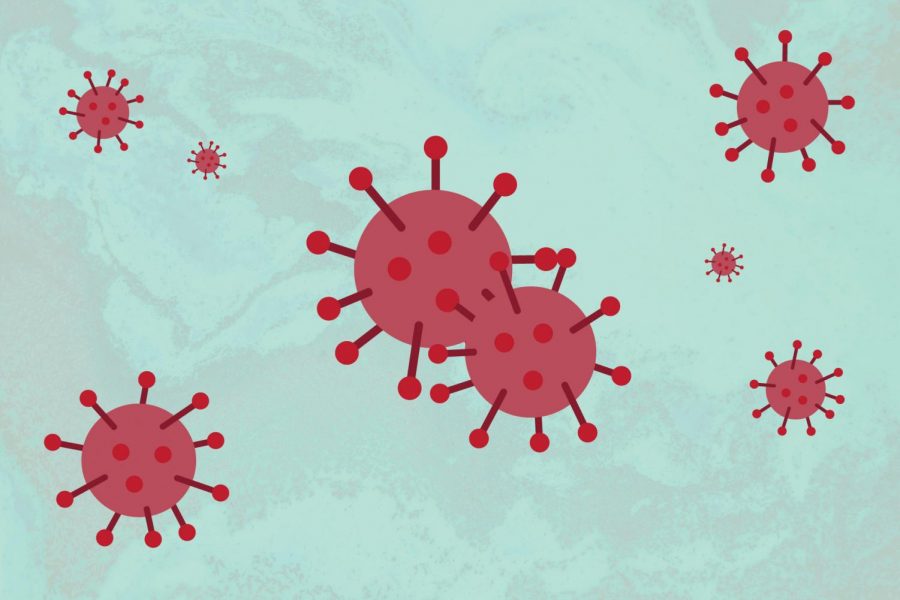Seattle University Prepares for COVID-19 Outbreak
After what seemed like a slow spread of the novel coronavirus—specifically the strain, COVID-19—as it came to Washington state from abroad, confirmed cases have increased by the hour. Seattle University has sent multiple emails to its faculty, staff and students to update and prepare the community during this anxiety-inducing time as three students are now in quarantine.
Currently, Washington State has nine confirmed deaths in the Seattle area—the only deaths and 30 cases in the state. On a larger scale, the Center for Disease Control and Prevention (CDC) has identified more than 100 cases in the United States.
Other states with confirmed cases include Oregon, California, Utah, Arizona, Texas, Wisconsin, Illinois, Georgia, Florida, Nebraska, North Carolina, New York, New Hampshire, Massachusetts and Rhode Island.
On March 2, Director of Student Health Center Tara Hicks and the Vice President for Student Development Alvin Sturdivant sent a campus-wide email stating that on the evening prior, the university was made aware of a student who was in close contact with an individual who tested positive for COVID-19.
The university then contacted Public Health Seattle King County to activate its Infectious Disease Response Plan. The student is reported to be in self-quarantine off-campus and does not appear to show symptoms of the virus at this time.
Sturdivant told The Spectator that the University’s current plan is to give weekly updates to the Seattle U community, but noted that, because the outbreak is evolving quickly, additional updates will be sent out as needed. The university has set up a webpage that will be kept up to date with additional information on the coronavirus and how it will impact Seattle U.
After learning the student was in Pigott Hall for approximately two hours on Friday, Feb. 28, the university decided to take extra precautions and cleaned the building before classes resumed on Monday.
“The cleaning was done in an abundance of caution, but was actually not recommended by the CDC or Public Health Seattle King County,” Sturdivant said. “The university decided that it was important to clean and disinfect the space.”
Dean of Albers School of Business and Economics Joseph Phillips explained that earlier in the quarter, faculty came up with a policy with guidelines and procedures surrounding possible campus closures for any possible circumstances.
“We had a meeting and talked about the need for everybody to put together the strategies for their class in terms of the possible campus closures,” Phillips said. “Some faculty are better positioned to do that than others, so we will be having a workshop this Thursday.”
The workshop is designed for faculty that are knowledgeable about online resources and platforms to teach others with less experience how to use them.
Dean of College of Arts and Sciences David Powers stressed how important it is to follow credible sources of information during this time when students are separated from their families.
“What I’ve been trying to do is link people to what the university information is, and also to information I’m hearing from experts—epidemiologists in the region—to inform and also make some concrete suggestions,” Powers said.
On March 3, Seattle University launched a website that will be kept up to date with additional information on the Coronavirus and how it will impact Seattle U. The website includes the most updated statement from the university that was sent out on Monday.
Links to Washington state resources and dates for every coronavirus update sent out by the university are listed on the website. A section for frequently asked questions is also included in the website that provides university level responses following the spread of the outbreak.
Seattle U’s Education Abroad Office has now officially confirmed which travel restrictions are being put into place for university-related programs. Travel to China, Italy and South Korea is temporarily prohibited for all students, faculty and staff.
This updated information also states that two other students are now in self-quarantine off campus. The two students differ from the first student in quarantine as they did not return to campus after contact with the virus.
At this time, the university said there has been no spread of the virus between students and reiterated that the three individuals who are quarantined are off campus. According to the website, there are currently no confirmed COVID-19 cases.
“The quarantine recommendations are specific to students who have been exposed to COVID-19 or who have traveled back from China or any of the other impacted international territories,” Sturdivant said. “In the event that we have a student who is in that same category, we’re also asking that they self-quarantine. At the moment, we’ve not had any students who live on campus who fall into that category.”
Seattle U advises the community to remain updated on new information by consistently checking school-wide emails, the Seattle U Coronavirus webpage and the university’s social media pages.
If you or anyone you know is displaying symptoms of COVID-19 such as a cough, fever or other respiratory problems, Sturdivant stressed the importance of contacting Seattle U Public Safety as soon as possible. He also advised that students should not go to the emergency room or UrgentCare, in order to reduce the risk of it spreading. Instead, Public Safety can contact the Center for Disease Control directly, who will then contact the student for next steps.


